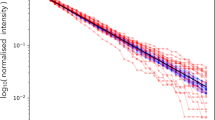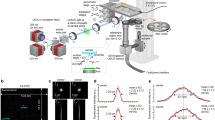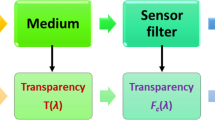Abstract
A PHOTO-ELECTRIC apparatus for counting individual microscopic cells in fluid suspension has been constructed in this laboratory. A sufficiently large signal-to-noise ratio from a single cell or a part of it has been obtained by the use of a specially designed dark-field system and an RCA 931-A multiplier phototube. The phototube is followed by an amplifier which operates a mechanical counter. As it was not possible to arrange the cells in one line in a capillary space, a scanning method using an ordinary counting chamber was evolved.
This is a preview of subscription content, access via your institution
Access options
Subscribe to this journal
Receive 51 print issues and online access
$199.00 per year
only $3.90 per issue
Buy this article
- Purchase on Springer Link
- Instant access to full article PDF
Prices may be subject to local taxes which are calculated during checkout
Similar content being viewed by others
Author information
Authors and Affiliations
Rights and permissions
About this article
Cite this article
LAGERCRANTZ, C. Photo-electric Counting of Individual Microscopic Plant and Animal Cells. Nature 161, 25–26 (1948). https://doi.org/10.1038/161025b0
Issue Date:
DOI: https://doi.org/10.1038/161025b0
This article is cited by
Comments
By submitting a comment you agree to abide by our Terms and Community Guidelines. If you find something abusive or that does not comply with our terms or guidelines please flag it as inappropriate.



